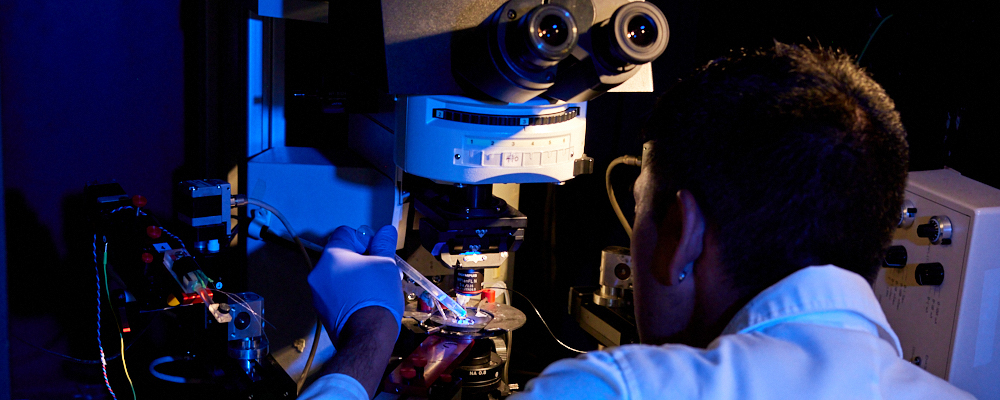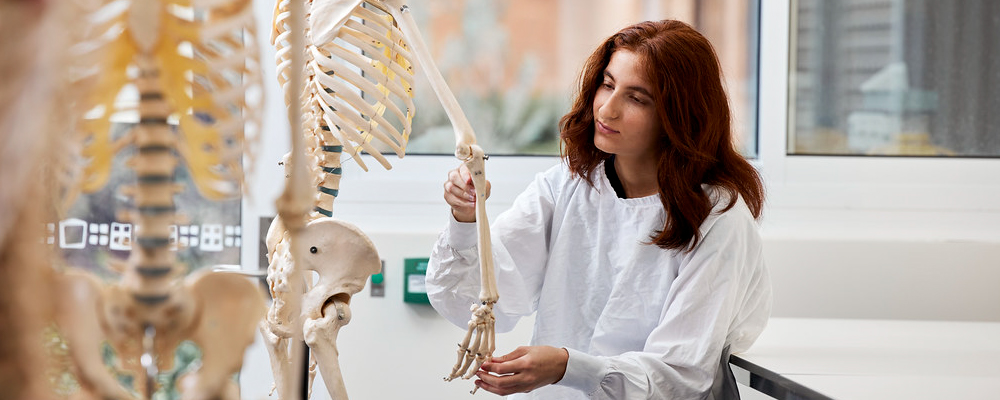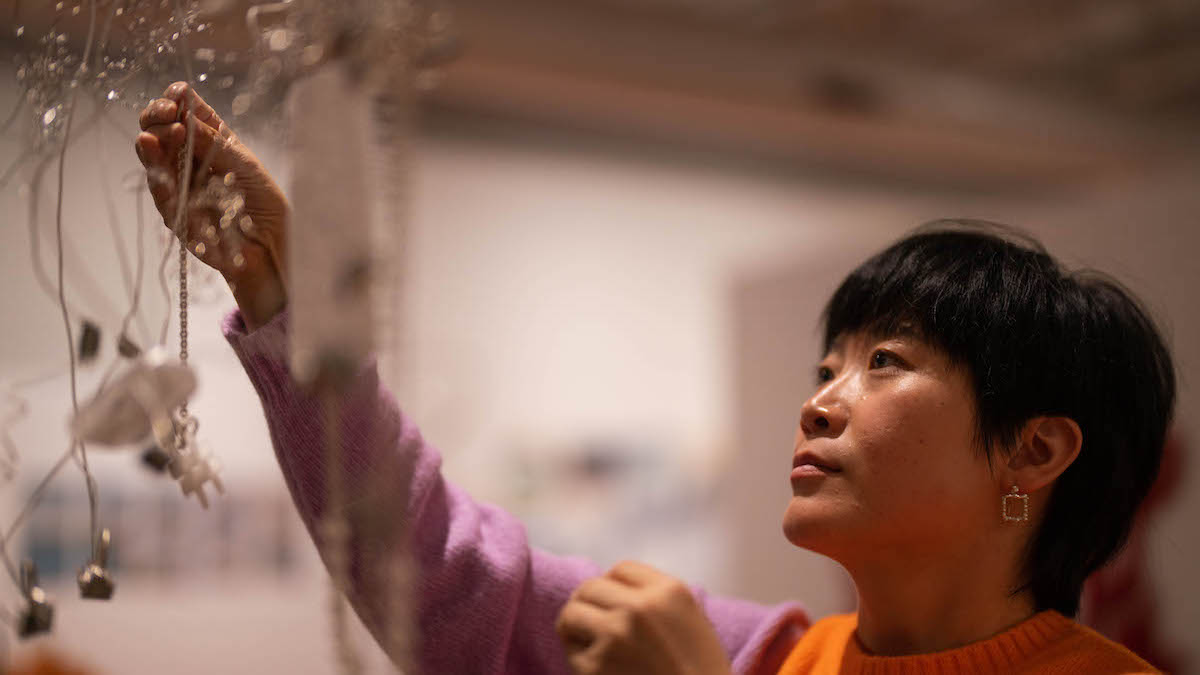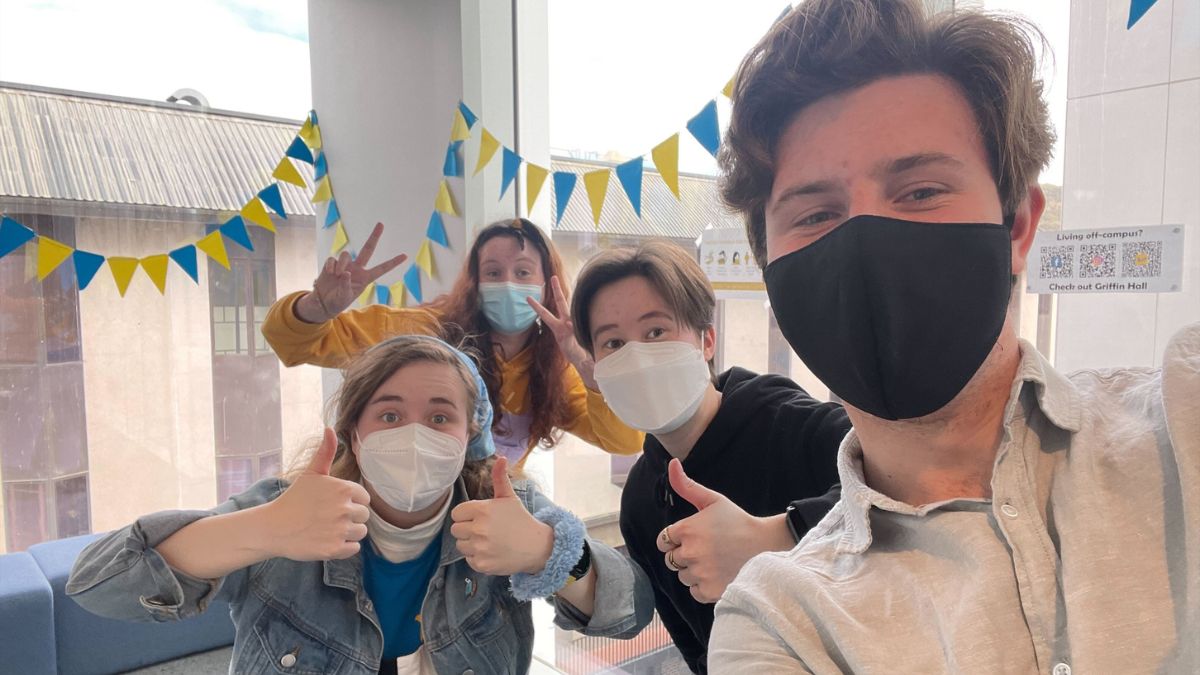
Published on
What can you do with a Bachelor of Health Science?
The Bachelor of Health Science at The Australian National University (ANU) is a diverse degree that serves as the perfect launching pad for a career in health. You could even earn a direct pathway to studying a Doctor of Medicine and Surgery – without sitting the GAMSAT. So, what can you do with a Bachelor of Health Science? Read on and find out.
Overview
- The ANU Bachelor of Health Science gives students a broad base of medical and health sciences skills and knowledge and a variety of research method skills.
- Some students can earn a conditional offer for the Doctor of Medicine and Surgery, a prerequisite for becoming a GP or other specialist, after completing this bachelor's degree.
- Students may want to take on a vertical double degree to gain a master's degree in population health, social medicine or secondary teaching.
- You can join some parts of the health sector, such as a public health unit, after completing the degree.
A pathway to practising medicine
Typically, entry to a Doctor of Medicine and Surgery at ANU requires applicants to sit the GAMSAT (Graduate Australian Medical School Admissions Test) and either have completed a bachelor degree or be in their final year.
However, students who show excellent progress in the Bachelor of Health Science will receive a conditional offer to the Doctor of Medicine and Surgery program. Getting an offer is contingent on a minimum GPA and interview, but does let you skip the GAMSAT and know you have a path to securing a place.
After successfully completing your doctorate, you're qualified to enter the medical workforce as an intern. Doing an internship is the first post-university step to earning the right to independent practice.
So, if you're interested in becoming a specialist doctor or general practitioner, a Bachelor of Health Science is a great idea. Even if you aren't offered a direct pathway, completing the degree will let you sit the GAMSAT to apply to the postgraduate medicine program.

If you perform well in your Bachelor of Health Science, you could be offered a spot in the Doctor of Medicine and Surgery program.
Work in a public health unit
Practising medicine is an obvious one, but you're probably wondering what else you can do with a Bachelor of Health Science.
Because the ANU Bachelor of Health Science covers foundational knowledge about health research, policy and public health, it's a great way to build the skills for employment in a public health unit.
Public health units were first set up across Australia in response to the Covid-19 pandemic, but they've since taken on other roles. Now they're responsible for monitoring population health in their geographic area, including implementing programs to prevent disease and promote health.
All these functions require a strong team with a wide knowledge base. If you are somebody who is enthusiastic about prevention, this could be just the job for you.
If working in a public health unit interests you, you might even consider turning your Bachelor of Health Science into a Vertical Double Degree. Getting a Master's in population health or social medicine would give you even more sought-after skills and make your application enticing.
Become an allied health professional
Allied health encompasses non-medical, dental or nursing professions, so there is a ton of variety in what you can practise. Art therapists, optometrists and psychologists are allied health professionals.
Working in allied health can see you caring for the vulnerable people in our society, with work in aged care, disability and mental health being common.
If that sounds like your cup of tea, a Bachelor of Health Science is a great place to start. Depending on the specialisation you're looking for, you might need to get more training. But you'll be going into it with a great academic foundation of knowledge and research skills you need to excel.

Expanding in scope since the pandemic, public health units are a great place for somebody passionate about medicine.
Educate and inform
Even if you're not practising on the front lines of health, there's always a need for communicators and researchers.
Are you at your best in front of a lecture theatre or writing reports and papers? Then you might consider doing a master's or PhD and pursuing a career in academia, educating the next generation of health professionals or researching burning questions.
You could even study a Vertical Double Degree, combining your Bachelor of Health Science with a Master's of Secondary Teaching. You'd graduate qualified to teach science at high schools across Australia.
Or you might consider communicating the latest discoveries and advancements to a general audience as a health science journalist.
If you decide to flex your research muscles, you might even look into work as a policy advisor. You can prepare reports and briefings for politicians or non-government organisations (NGOs), helping them understand the best way forward.
A diverse, flexible degree
So, what can you do with a Bachelor of Health Science? Heaps, it seems! So why pursue it?
The multidisciplinary program gives you invaluable insight into health sciences and research and provides the knowledge and skills to help you become an effective member of a health team in the capacity you choose to pursue. Gaining broad knowledge of health and biology, plus strong research skills, can also set you up for further specialisation in your chosen field.
With the ANU Bachelor of Health Science, you can jump right into a career that doesn't require further training and get on-the-job experience – or pursue further studies to specialise.
Whatever you decide, a bachelor's degree in health sciences at ANU is a great way to set yourself up for a fulfilling career.

If you’re interested in health or medicine, a Bachelor of Health Science from ANU is a great pick.
Find out everything you can do with a Bachelor of Health Science at the ANU College of Health and Medicine.



